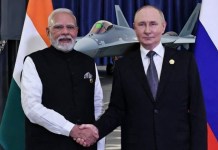India has been concerned about the growing presence of China in Sri Lanka. India’s Accord Group and Oman’s Ministry of Oil and Gas have signed a $3.85 billion deal to construct an oil refinery in Sri Lanka, the biggest foreign direct investment in the country.
India To Assist Sri Lanka In Developing Kankesanthurai Harbour Into Commercial Port
The deal symbolises a challenge to China, which had been the biggest foreign investor on the island. Many critics have seen this development as a massive victory for India. India has been concerned in the past few years about China transgressing into Sri Lanka and other countries in the region where India is the traditional power.
Sri Lankan officials said the 200,000 barrel-per-day refinery will be built on 585 acres near the site of the new Hambantota international port and a related industrial zone on the nation’s southern coast.
The refinery, construction of which is expected to begin on March 24 and be completed in 44 months, is set to produce 9 million metric tonnes of refined products a year for export from the Hambantota port, which serves the busiest East-West shipping route.
Privately owned Accord Group will control 70 per cent of the joint venture and the Sultanate of Oman’s Ministry of Oil and Gas the rest. Accord’s ownership comes through a Singapore investment vehicle which is 90-percent owned by its Silver Park International Pvt Ltd operation.
China Merchants Port Holdings, China Harbour Engineering Corp and other Chinese companies are investors in the port and industrial zone. China’s separate $1.4 billion financing of facilities on reclaimed land near the nation’s main Colombo port is currently the island’s biggest single foreign direct investment.
More News at EurAsian Times
- Indian Military Base in Sabang can Strangle China at the Strait of Malacca
- Why is Japan Unhappy with Bullet Train Project in India?
- Is Saudi-UAE Alliance Working to Weaken the Gulf Cooperation Council?
- India-Japan Defence Partnership Aggressively Countering China
- Oman-UAE Relations Deteriorate; Muscat Warns Against Testing Patience




